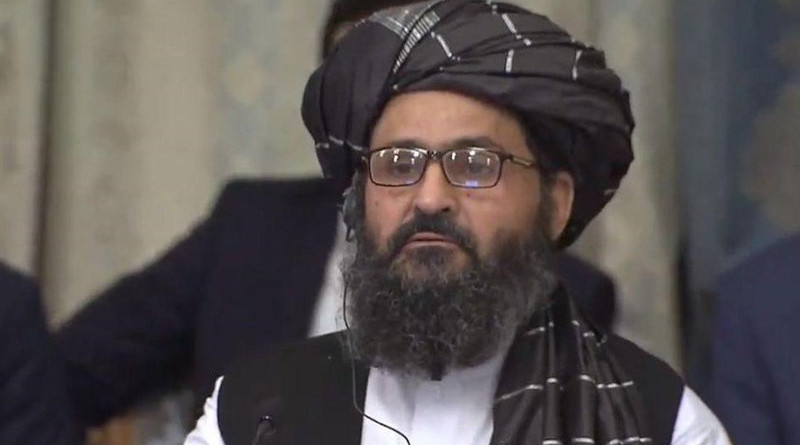India-Taliban Connection In The Offing: How Will It Look? – OpEd
A report by leading Indian daily, Hindustan Times, recently stated India has for the first time opened channels of communications with the Taliban leaders, including Mullah Baradar, actually created something of a stir in strategic circles. The Indian outreach is largely led by security officials and limited to Taliban factions and leaders that are perceived as being “nationalist”, wrote the paper. Last week, India’s foreign affairs minister S. Jainshankar stopped over in Doha, Qatar’s capital, where he held talks with his counterpart. The stopover has also been seen in the context of Taliban as Doha hosted rounds of peace talks between the Taliban and other key stakeholders.
If it’s happening, it is by far a biggest and notable shift from India’s choice of not engaging with the Taliban and, in a time when the United States is swiftly pulling its forces out while the other global powers are veering around to adjust themselves in a post-US withdrawal Afghanistan. In the words of Michael Kugelman, deputy director and senior associate for South Asia at Wilson Center in Washington, “It’s a significant shift because New Delhi is going from a nonexistent relationship to the beginning of some kind of a communication channel”.
Others are of the view that India might have finally realized that with the US withdrawal, regional stakeholders cannot let Afghanistan become a safe haven for the militant outfits again. India has been consistently engaging with the successive Afghan governments after 2001 and spent millions of dollars on reconstruction and revamping of the infrastructure. New Delhi also provided security assistance to Afghanistan and trained Afghan cadets and Afghan National Army (ANA) over the years. It is the largest regional donor to Afghanistan with a fresh pledge to initiate 150 additional projects worth $80 million in Afghanistan.
Given the scale of huge investment—-which New Delhi would hate going in vein— and a desire to keep friendly ties with Kabul, there is no choice but to open communication with the Taliban as they are the real stakeholders and power brokers in Afghanistan. To this end, New Delhi’s message sharing with Mullah Bradar, who was arrested by Pakistan in 2010 and released in 2018, is a vital move.
Another reason that India might have in view before making a change in policy towards Afghanistan is Pakistan. For the last few decades, Pakistan has kept strategic linkages with the Taliban despite playing front-line role in war on terror. Lately, however, some reports suggest Pakistan has lost its leverage over Afghan Taliban because of the latter’s inclination towards making decision at their own. Furthermore, unconfirmed reports about Pakistan’s readiness towards allowing the US to use its airbase for carrying post-withdrawal operations, will not go well for Taliban who have already warned neighboring countries calling it a ‘historic mistake’.
Over the years, India has also become a major US ally and when the US president Joe Biden while announcing his plans of forces withdrawal asked the regional countries, including India, to support Afghanistan, that was a sign of enhanced trust on Indian role in Afghanistan. During Jainshankar’s recent visit to the US and talks with the Defence Secretary Lloyd Austin and during other meetings, Afghanistan came up in all of these meetings and they all realized India is an important part of the future of Afghanistan. With the US backing, India can better project itself a trusted ‘watchdog’ given the American frigid relations with regional rivals like Russia and China and suspicion towards Pakistan.
For the Taliban, coming to terms with India—which historically supported anti-Taliban elements—- is a hard pill to swallow yet it offers an opportunity for the group to get some support from a regional power. If Taliban make it to power, which is highly likely, they would need legitimacy and international recognition which they lacked during their previous stint in power during the 1990s. India can hand the Taliban that much needed two-pronged support, let alone financial assistance.
The communication between India and the Taliban is still at the nascent stage; both are nervous at judging each other’s motives and hasn’t publically issued any statement. Yet what makes it clear is that there are greater prospects of cooperation. Islamabad, on the other hand, will also be looking at this budging relationship as it never felt comfortable over active Indian maneuverings inside Afghanistan during the past two decades. A careful examination of the situation after US withdrawal and a balanced approach can bring about regional peace as no stakeholder would want Afghanistan becoming a pawn of insurgency and a breeding ground for militants, once again.
*The writer has completed PhD in South Asian Studies from the South Asian Center in Punjab University, Lahore. She can be reached at [email protected]

